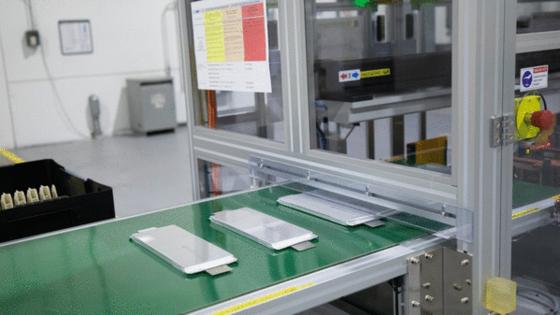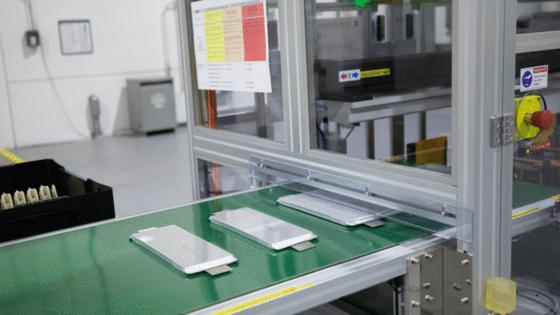Ford hails 'breakthrough' from lithium manganese-rich batteries
Published in Automotive News
Ford Motor Co.'s director of electrified propulsion engineering on Wednesday hailed a "breakthrough" in battery chemistry from the Dearborn automaker's battery research and development center in Romulus.
Ford is working to scale lithium manganese-rich cell chemistry and integrate the batteries into Ford's lineup within this decade, Charles Poon wrote in a blog post on LinkedIn. LMR batteries, Poon said, are cheaper, higher in energy density and safer than many batteries already on the market, which means they can contribute to more affordable, higher-range electric vehicles that are needed to address obstacles to EV adoption.
"We've fostered a culture of relentless innovation, where challenging convention and pushing the boundaries of what's possible is part of our every day," Poon said. "From materials science to cell design to manufacturing processes, we're tackling every aspect of battery technology with unwavering focus to reduce cost. Ford started by offering nickel cobalt manganese (NCM) batteries and later added lithium iron phosphate (LFP) batteries in 2023. LMR is the answer to 'what next?' "
A pilot line is producing second-generation LMR cells, Poon said. LMR replaces nickel and cobalt in traditional lithium ion batteries with significantly higher amounts of manganese, which is a more plentiful and lower cost material.
Poon described the batteries as being able to hold more energy than high-nickel batteries and cheaper than mid-nickel batteries. He characterized their safety profile as similar to that of lithium-iron-phosphate batteries, which are lower-density, cheaper batteries that Ford added in 2023 alongside traditional nickel manganese cobalt batteries.
Automakers, battery companies and governments are investing billions of dollars into the next breakthrough in the technology for cheaper products that allow EVs to travel farther. Key minerals like cobalt come from places like the Democratic Republic of the Congo, where there are humanitarian concerns around mining from child labor and human trafficking. Meanwhile, nickel is costly, and many minerals for batteries are processed and refined in China, creating national security concerns. Solid-state, semi-solid-state and lithium-sulfur are other examples of battery chemistry in development.
"Our goal is clear: to achieve cost parity with gasoline vehicles and deliver affordable customer solutions tailored to their needs," Poon added. "The introduction of LMR is a key enabler in offering electric vehicles that are both accessible and desirable."
©2025 www.detroitnews.com. Visit at detroitnews.com. Distributed by Tribune Content Agency, LLC.











Comments